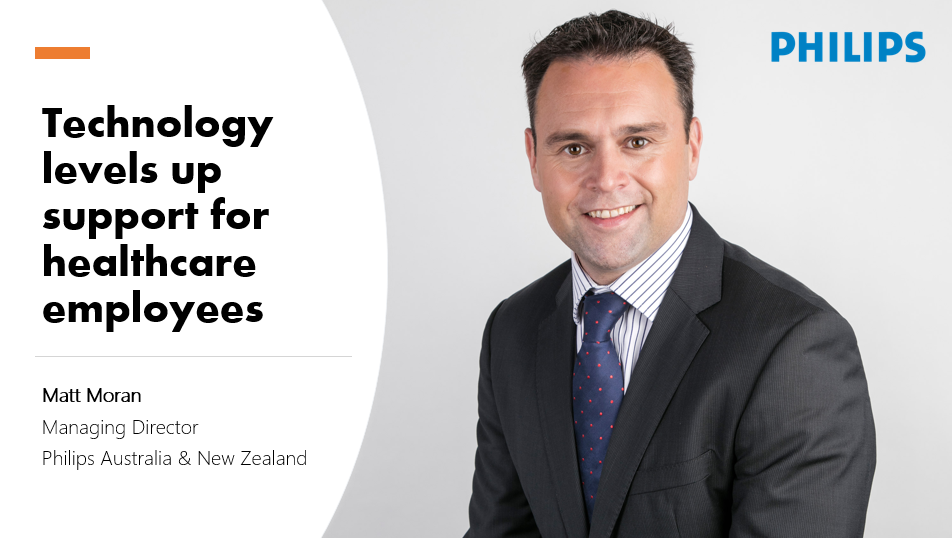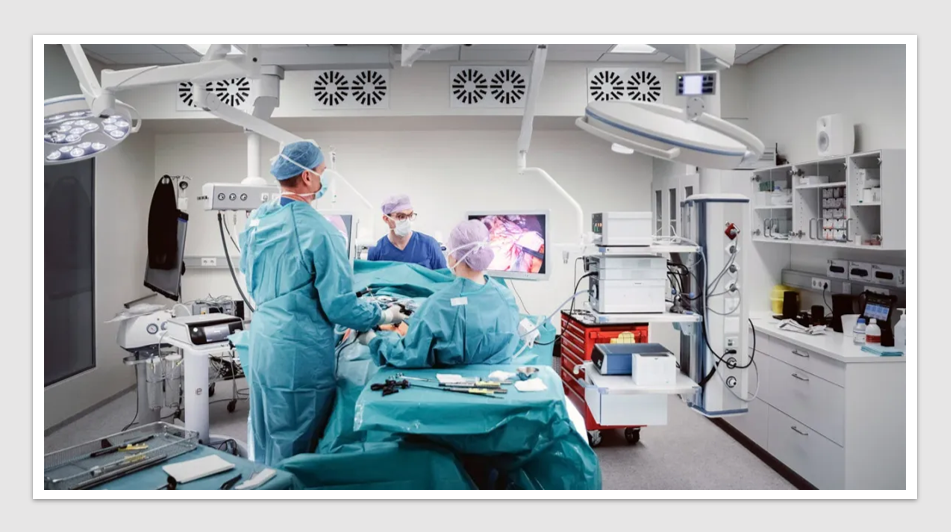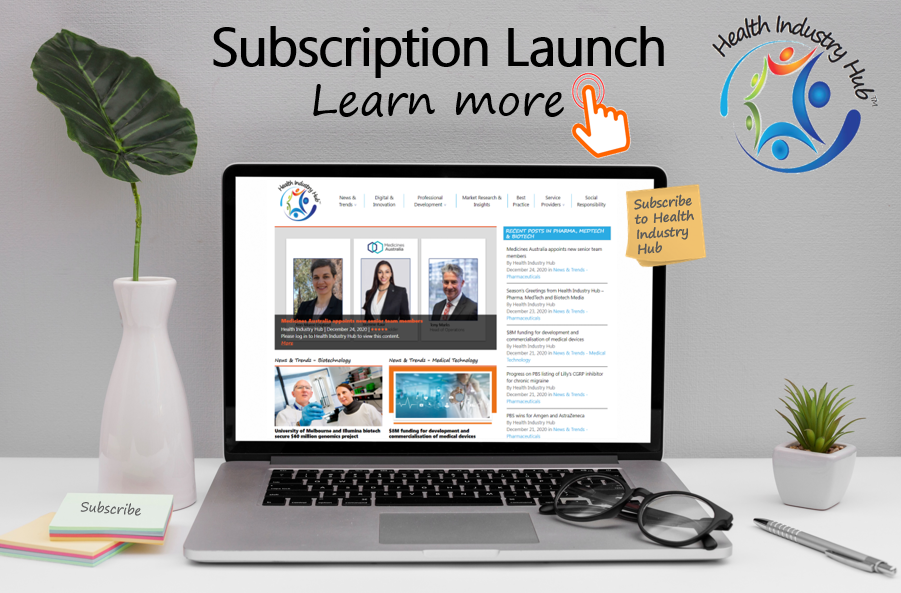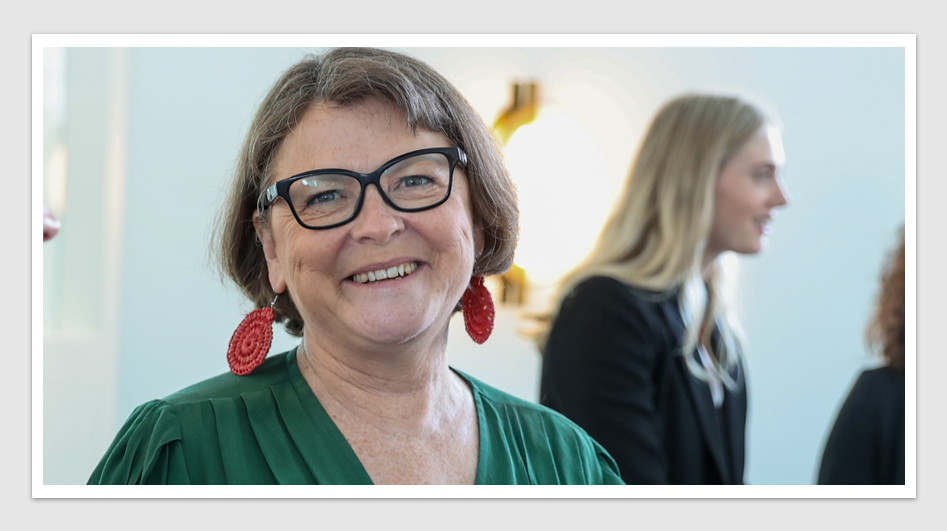News & Trends - MedTech & Diagnostics
Technology levels up support for healthcare employees – Matt Moran, MD, Philips

MedTech News: Matt Moran, Managing Director of Philips Australia & New Zealand, reflects on the impact of the COVID-19 pandemic on healthcare professionals and the pivotal role of technology in supporting them.
“2020 has been a challenging year as change swept through all facets of our lives but, without a doubt, the greatest strain has landed on the shoulders of healthcare workers. We’re seeing record levels of burnout across the industry as health practitioners continue to battle a global pandemic,” said Matt Moran.
According to Mr Moran, Philips is working on healthcare solutions that drive forward the use of artificial intelligence (AI), encourage increased data portability, and allow the development of centralised command centre capabilities in healthcare, helping solve the major challenges the sector faces efficiently and effectively. Technologies like these can help address burnout, reduce average workload, and alleviate workplace stress to stem worker churn.
“While burnout and stress are common challenges for health practitioners in any year, 2020 has seen unprecedented pressure heaped on young professionals. There’s been a rapid increase in reported rates of healthcare worker burnout as practitioners are being stretched further,” he added.
The 2020 Philips Future Health Index report found that while 87% of young professionals (general practitioners, specialists and nurses under the age of 40) are satisfied with their work, 92% of them believe emerging technologies can help reduce their current workloads. Moreover, 73% of the same cohort are confident that technologies like those being implemented by Philips will help to reduce stress levels in the workplace.
The report found that Australia’s next generation of healthcare professionals, regardless of whether they use artificial intelligence (AI) in their daily practice or not, have strong hopes that the AI technology can usher in a new era of patient care. Al can enhance disease diagnosis (77% of respondents), offer personalised patient care (70% of respondents), optimise operational efficiency, predict outcomes and integrate diagnostics.
Mr Moran continued “If we’ve learned anything from COVID-19, it’s how essential healthcare workers are as part of our healthcare ecosystem. Investment by hospitals and practices into new technologies that can alleviate operational inefficiencies is vital. Additionally, collaboration with the next generation of healthcare professionals on the type and installation of solutions is vital.
“The next generation of healthcare professionals see the challenges the healthcare industry faces first-hand, with a unique understanding of how it impacts patient care. For instance, this cohort is keenly focused on not only the implementation of effective data-based solutions to improve patient care, but comment that it is vital the data sets generated are portable and transferrable, with 36% of Australian healthcare professionals seeing cross-collaboration between hospitals and healthcare practices as an area where the industry can greatly improve patient and worker satisfaction,” he said.
Mr Moran pointed out that as Australia’s population ages and more is asked of the healthcare system in Australia, technology can play an essential role in keeping patients healthy. Implementing the right solutions can provide a holistic experience for patients while harnessing data to avoid intensive critical care for longer as well as reducing resource load on professionals and service providers. Additionally, younger healthcare professionals are confident they can provide better care to patients by embracing technology, a positive behavioural shift from generations previous.
“With nearly 9 in 10 young healthcare professionals believing technology is an important tool in delivering a better, more qualitative patient outcomes, it is time for industry decision-makers to embrace these emerging technologies so they can retain the exceptional talent across the sector after COVID-19 passes,” he concluded.
News & Trends - MedTech & Diagnostics

Bariatric surgery trumps Novo Nordisk’s Wegovy in cost-effectiveness and durability
MedTech & Diagnostics News: Bariatric surgery emerges as cost-effective, boasting superior and enduring weight loss outcomes over a five-year span […]
MoreNews & Trends - Pharmaceuticals

Aussie digital health company hits new milestone in AstraZeneca partnership
Pharma News: Fewer than 50% of asthma patients adhere to their prescribed preventative medications. An Australian digital health company has […]
MoreDigital & Innovation

Medical drone to reduce health equity gaps in rural and remote Australia
A specialised medical drone which increases accessibility to essential health services such as pathology, medicines, and telehealth services in rural […]
More
